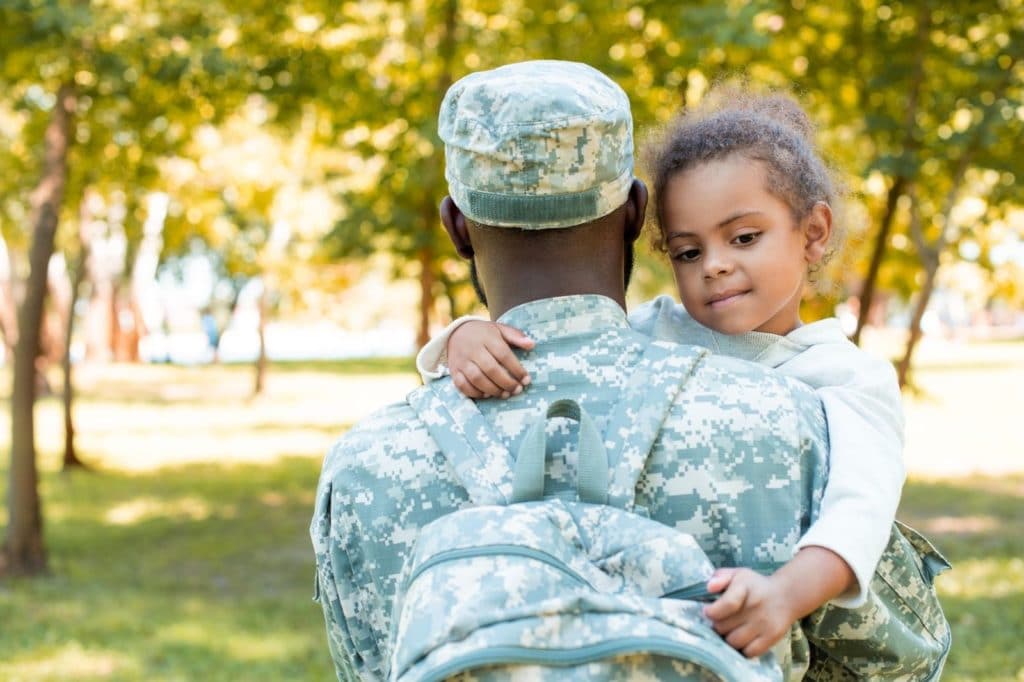Mrs. Lori A. Phipps is the Military Dependent Education Specialist for Joint Base San Antonio-Lackland, Texas. Her Military Child Education Program – School Liaison Office is known as the best MCE Program in the Air Force and is quickly gaining the reputation as one of the best in DOD. In this capacity she promotes systems that improve transition support for military families by establishing partnerships with bases and local schools, while advocating for the educational needs of military students.
In this 5-part video series,* Mrs. Phipps discusses the challenges of military life for kids, and helps teachers and youth workers learn more about the military kids in their care, including:
- Understanding the academic challenges facing military students; and
- Fostering situational awareness around the impact of transitions and deployments on the children in your care.
As Mrs. Phipps explains in one of the videos, each branch of the service has its unique ways of dealing with families, deployments and military moves, so there is no one-size-fits-all approach. And the dynamic is different for single parent families, dual military families where both parents serve, and families where one parent is deployed while the other stays home.
She draws from her personal experience as a veteran of Desert Storm and the spouse of a military veteran to help educate professionals about the specific challenges of working with military families.
“There are a lot of stressors that go on in the military, and lot that goes on in the lives of these kids and their families,” she explains. “Military kids serve too. They are born into the military, so they don’t have the option to say ‘hey, I don’t want to go.’ They’re in it 24/7.”
Mrs. Phipps stresses that military children often have high anxiety over their parents’ jobs, especially when they are exposed to news and social media. This is in addition to their own stress about fitting into a new school, community, or caregiving routine.
Change is the only constant
One of the biggest challenges military kids face is the uncertainty that comes with never knowing when new orders are going to drop. They may have to move in the middle of the school year, or in the middle of a sport season, leaving friends, extended family, boyfriends or girlfriend behind with little notice.
Deployment of a parent is also a major stressor for military kids, and can anxiety and upheaval in their home routine that plays out in the classroom. And because military families move so often, the kids are often as risk of falling through the cracks in the school system.
Mrs. Phipps explains that because they often move during the school year, it can be hard for them to stay on track with things like SAT testing, college applications, AP classes or Early College High School Admission programs. All of these challenges can lead to a situation where military students are falling behind.
“When the kids fall through the loop, or the family falls through the cracks, then we have a crisis situation potentially on our hands,” she explains, noting that it’s important for military families to have an existing resource network. This is one of the primary objectives of the School Liaison Office in her program, to help the professionals in a school or community provide the kind of safety net these kids and their families need.
Families often face financial hardships as well, Mrs. Phipps explains. She relates the story of a National Guard family whose dad left a high-paying job when he was deployed full time. The family had to sell their home and move in with grandparents to be able to afford to pay their bills on the much smaller National Guard salary. This kind of lifestyle change can be hard to understand for a child, and often impacts their social standing and extra-curricular activities, too.
Children of deployed parents often take on caretaking chores for younger siblings, and in the process it’s not uncommon for them to give up some of the things that matter to them. They may not be able to go out for the baseball team this spring if they have to watch their younger sister after school. While being a responsible part of a caring and supportive family is a valuable lesson, this can be a source of frustration and sadness.
Classroom strategies for helping military kids
As youth workers, it’s important for us to understand the challenges military kids face, and do what we can to help them cope and thrive. As Mrs. Phipps explains, we all have to be highly engaged in making sure these kids are being taken care of at all levels.
We can do this by:
- Helping to spread awareness within our school district and community about the needs of military families and their kids, and the resources available through the MCE and similar programs.
- Welcoming military kids into their new schools and letting them know it’s a safe place to talk about their military experience.
- Letting your students know you are willing to talk about what’s going on in their lives, and encourage them to ask for help when they need it.
- Using deployments to help inform your lesson plans – you can tie a child’s experience into geography lessons, letter writing campaigns, journaling opportunities, scrapbooking or other educational opportunities.
- Being aware of important dates, like departure dates, return dates and homecomings. Be flexible with homework assignments and testing when you can to accommodate the family.
- Understanding that one of the worst questions you can ask a new military child in your classroom is “where are you from?” These kids may have already moved many times in their short lives. They don’t know if you’re asking “where were you born” or “where did you move from” or “where did you stay the longest.” Don’t put them on the spot like this.
- Watching for signs of stress and anxiety, by observing changes in behavior in military children, and sharing your concerns with school counseling staff and the family as appropriate.
Positive characteristics of military kids
It’s easy to focus on the challenges and stressors of being in a military family, but Mrs. Phipps points out that there are some real benefits to being raised in a military family.
“You’ll find these kids are some of the most independent, adaptable and reliable kids you’ll ever talk to, regardless of what’s going on,” she explains. “Remember, these kids get up and move at the drop of a hat, and they are raised to understand that when they see a uniform, they see family.”
She finds that children in military families are often more flexible, loyal and inclusive that non-military kids, and can be trusted with leadership tasks and responsibilities. They are often highly cooperative, respectful and the first ones to volunteer. For teachers and other youth workers, it’s important to give these children the opportunity to shine.
If you have military families in your community, this video series can be a huge help in understanding how to reach them and work with them to lessen the challenges and support their growth.
*Note: You must be able to access YouTube to view these videos. Some organizations limit access to this video-sharing website.










